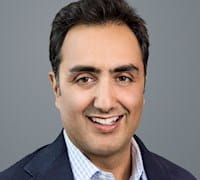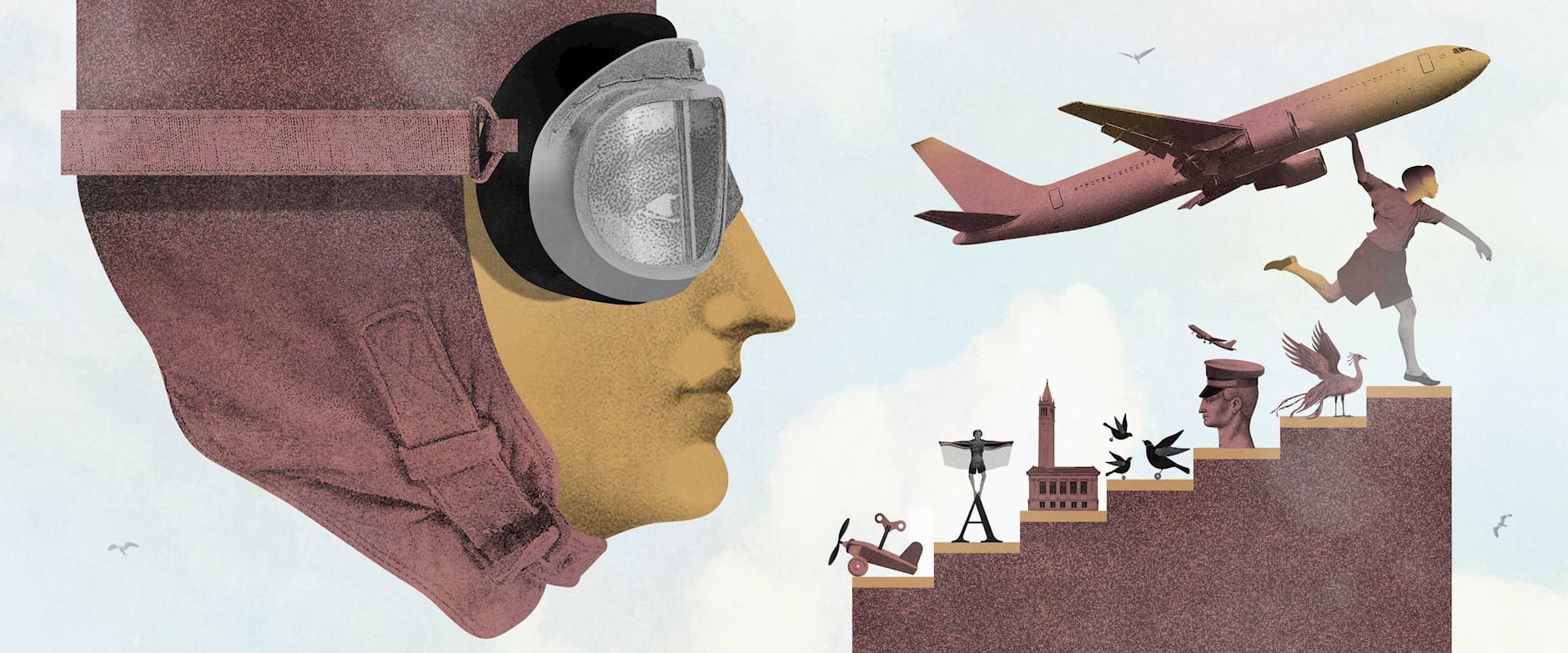As early as I can remember, I have wanted to fly. When I look back at pictures from my childhood, young me was playing with model airplanes. I was the kid who hung out at the airport and looked up at the sky every time an airplane flew by.
I am a fifth generation American, born in Iran. My family moved to California during the Iranian Revolution, when I was 7. I was 14 when my parents said that if I got straight A’s for a year, they’d pay for flying lessons. I did it, and started learning how to fly. You can fly solo at 16, but I didn’t yet have a driver’s license, so my mother drove me to the airport on my 16th birthday to do my first solo flight.
I knew then I wanted a career as an airplane pilot. I went to the University of California at Berkeley and studied mechanical engineering and philosophy.
Gaining the experience and certifications to become an airline transport pilot is expensive and time consuming. One way is to teach others to fly. It was a humbling subject to teach: if you mess up on piano, your teacher doesn’t die. There were many close calls and mishaps, but I never learned so much about flying as I did when I was teaching. I ended up getting hired at Continental Airlines as a regional pilot, and eventually became one of the youngest captains at the airline.

”There were many close calls and mishaps, but I never learned so much about flying as I did when I was teaching.”
— Pasha Saleh, ’07
I fulfilled my childhood dream, sitting in the left-hand seat as a captain, but I started feeling like I needed more professional fulfillment. I wanted to have an impact on the aviation industry that went beyond flying, so I applied to Booth’s Full-Time MBA Program.
I left the airline industry completely while I went to Booth full time. It was a big risk, but ended up being the best choice I could have made. I was one of the oldest students, and I liked that Booth allowed flexibility—you had the first semester where you had to take the same classes as everyone else, but you could quickly specialize. I knew that I wanted to concentrate on the aviation sector, and Booth allowed me to be laser focused.
I didn’t even know how to use Excel before attending Booth, but the quality of the people I met and their willingness to help was extraordinary. My entire worldview had been shaped by this career that I had aspired to since I was 5: you survive based on your ability to work effectively in a team. There’s no room for ego or going it alone. Aviation is the safest form of transportation because you actively solicit other people’s input, and there’s a strict reliance on facts and data. You take information from instruments in a dynamic environment, and learn to be skeptical. These principles were echoed at Booth.
After Booth, I worked at McKinsey & Company as a management consultant, then at Hawker Beechcraft as director of sales, and then at Boeing as director of strategy and business development. I went on to work at AirMap, the world’s leading provider of airspace intelligence for unmanned aircraft, as vice president of business development. Today, I’m the head of corporate development at Alaska Airlines.
Alaska was the first airline to do online ticketing, the first to use GPS. My role is to find the next big thing. We are now the first airline to use A.I. to design airplane routes that are safer and more efficient. We recently launched Alaska Star Ventures to invest in companies that are advancing sustainable technology for the aviation industry, accelerating our company’s progress toward net zero carbon emissions.
I didn’t even know what a venture fund was before Booth. If anything has transformed my career, it was my MBA experience.


